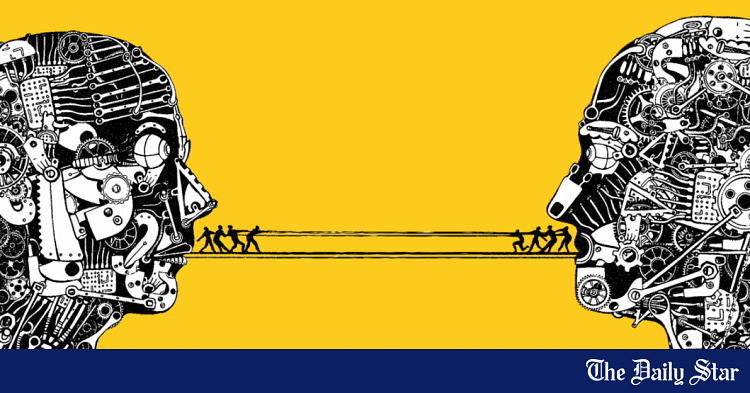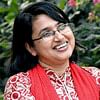If we start a discussion with the attitude of clinging to our opinions, it does not get us very far. VISUAL: COLLECTED
“>
If we start a discussion with the attitude of clinging to our opinions, it does not get us very far. VISUAL: COLLECTED
The dean of Harvard Kennedy School sometimes meets students—usually a group of seven or eight—over breakfast or lunch to have discussions. There is no specific agenda; students can express their opinions or suggestions on any matter. Over a year ago, I had the chance to have such a discussion with the dean over lunch as I was studying there for a mid-career course. During our lunch, the dean listened to everyone, took notes, responded to questions, and said he would raise some of the issues that were discussed with other faculty members.
Whether everyone can openly express their opinions on political and social issues also came up in our discussion. The dean commented, “It is believed that most of the teachers and students at Harvard Kennedy School support the Democratic Party. That’s why the supporters of the Republican Party here are usually reluctant to share their own opinions.” He added, “It hurts both the Democrats and the Republicans.” The dean was interested in having more students supporting the Republican Party so that discussions and debates could be more diverse and meaningful.
A professor who taught exercising leadership once told us, “Talk more with those with opinions different from yours. Try to understand their perspectives.” His suggestion was simple. If someone says something completely contrary to one’s thoughts, instead of reacting strongly, one should express interest and say, “Tell me more about it.” This inquisitive mindset can lead to effective communication and generate new learning.
Listening to others does not mean agreeing with them, but acknowledging that different opinions exist and seeking to understand them is crucial. But is it actually happening? Harvard Kennedy School, like other places in the United States, has what is called the “cancel culture.” If someone says or does something that others find “unacceptable,” the tendency to boycott or isolate them is called “cancelling.” According to some analyses, cancel culture has provided an opportunity for marginalised members of society to voice their opinions. Others believe that it narrows free speech and makes debates impossible. However, almost everyone agrees that the cancel culture has grown with the expansion of social media. As a result, many people are afraid to express their thoughts, especially if they don’t conform to the views of the majority.
In Bangladesh, are we interested in knowing and understanding everyone’s perspective on an issue? Can we have a constructive debate on anything—be it politics, social change, sports or entertainment? Or does it turn into an argument in no time?
Someone may have a different way of thinking from us about society and politics and their way of living, but that does not mean that they are “wrong.” Has the internet liberated us mentally, or are we living in a bubble with like-minded people? Many people are constantly expressing their views on all sorts of social, political and cultural issues in private chats or on social media. But is there a real exchange of ideas?
I have observed that many people in our society suffer from confirmation bias, which means they only believe in evidence that confirms their existing views and disregard other information. However, it is important to maintain an open mind, challenge various ideas and also get challenged by others. Having candid conversations is intellectually stimulating and is a sign of maturity.
Extreme polarisation has happened in different parts of the world, making debates challenging. In any society, there has to be a space for many kinds of discussions to look at an issue from all perspectives. Unfortunately, that space seems to be shrinking every day. The rise of populism has contributed to a situation where rhetoric is more important than sound reason and evidence. The ability to critically examine an issue and not jumping to quick conclusions remains critical if we are to become responsible members of a tolerant, democratic and inclusive society.
Last year, I had an opportunity to visit the ancient Agora of Athens. This place was at the centre of public life in Athens; from trade to legislation—everything was done here. A professor of political philosophy explained that in Athens, questioning and debates were encouraged, and welcoming foreigners and their ideas was normal. Many of Athens’s famous philosophers came from other cities, and they enriched the ancient city. Another Greek city, Sparta, however, was the opposite. There was no place for foreigners, and dissent was not tolerated. Are many countries in the world becoming Sparta? In that case, is that not a serious threat to democracy?
If we start a discussion with the attitude of clinging to our opinions, it does not get us very far. Prof Julia Minson of Harvard University proposed an approach so that people can have open, meaningful conversations, termed HEAR: i) hedge your claims (i.e., do not express opinions too blatantly); ii) emphasise agreement; iii) acknowledge other perspectives; and iv) reframe to the positive. The point is to respect others’ opinions. In building an inclusive, democratic society, tolerance is paramount, and it is particularly important to give space to opposing views. Are we creating an environment in our society where reason prevails?
Laila Khondkar is an international development worker.
Views expressed in this article are the author’s own.
Follow The Daily Star Opinion on Facebook for the latest opinions, commentaries and analyses by experts and professionals. To contribute your article or letter to The Daily Star Opinion, see our guidelines for submission.




